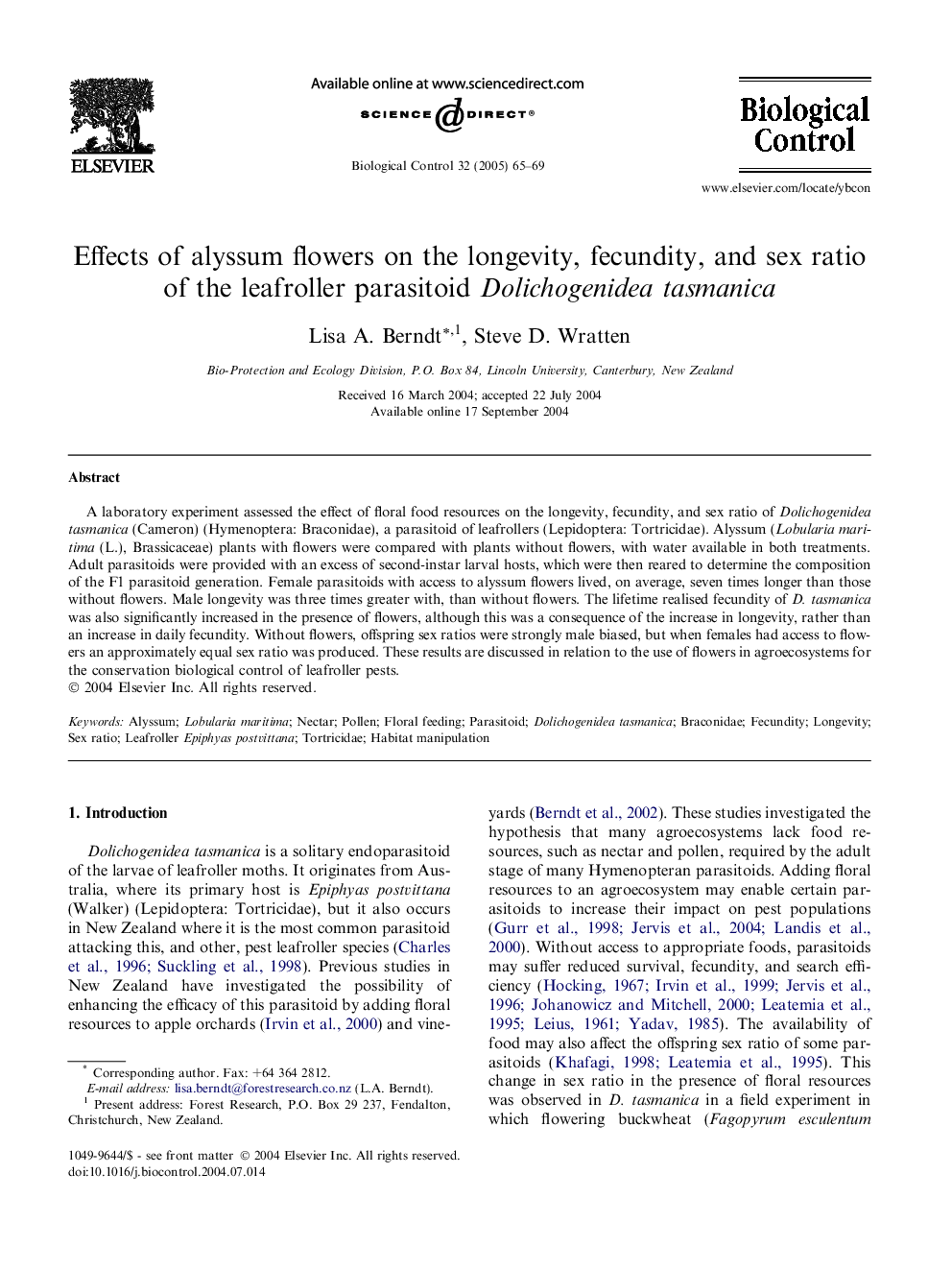| Article ID | Journal | Published Year | Pages | File Type |
|---|---|---|---|---|
| 9472088 | Biological Control | 2005 | 5 Pages |
Abstract
A laboratory experiment assessed the effect of floral food resources on the longevity, fecundity, and sex ratio of Dolichogenidea tasmanica (Cameron) (Hymenoptera: Braconidae), a parasitoid of leafrollers (Lepidoptera: Tortricidae). Alyssum (Lobularia maritima (L.), Brassicaceae) plants with flowers were compared with plants without flowers, with water available in both treatments. Adult parasitoids were provided with an excess of second-instar larval hosts, which were then reared to determine the composition of the F1 parasitoid generation. Female parasitoids with access to alyssum flowers lived, on average, seven times longer than those without flowers. Male longevity was three times greater with, than without flowers. The lifetime realised fecundity of D. tasmanica was also significantly increased in the presence of flowers, although this was a consequence of the increase in longevity, rather than an increase in daily fecundity. Without flowers, offspring sex ratios were strongly male biased, but when females had access to flowers an approximately equal sex ratio was produced. These results are discussed in relation to the use of flowers in agroecosystems for the conservation biological control of leafroller pests.
Keywords
Related Topics
Life Sciences
Agricultural and Biological Sciences
Agronomy and Crop Science
Authors
Lisa A. Berndt, Steve D. Wratten,
